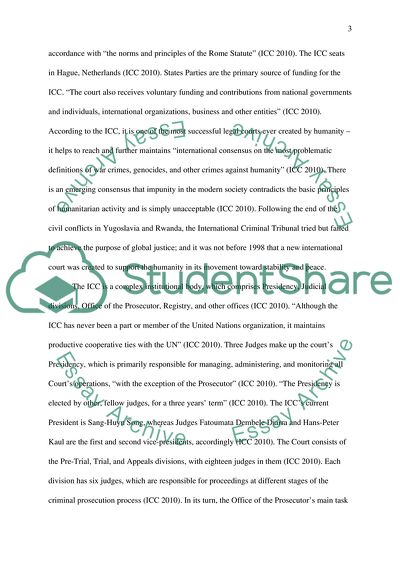Cite this document
(International Criminal Court Term Paper Example | Topics and Well Written Essays - 2500 words - 1, n.d.)
International Criminal Court Term Paper Example | Topics and Well Written Essays - 2500 words - 1. Retrieved from https://studentshare.org/law/1748701-the-international-criminal-court
International Criminal Court Term Paper Example | Topics and Well Written Essays - 2500 words - 1. Retrieved from https://studentshare.org/law/1748701-the-international-criminal-court
(International Criminal Court Term Paper Example | Topics and Well Written Essays - 2500 Words - 1)
International Criminal Court Term Paper Example | Topics and Well Written Essays - 2500 Words - 1. https://studentshare.org/law/1748701-the-international-criminal-court.
International Criminal Court Term Paper Example | Topics and Well Written Essays - 2500 Words - 1. https://studentshare.org/law/1748701-the-international-criminal-court.
“International Criminal Court Term Paper Example | Topics and Well Written Essays - 2500 Words - 1”, n.d. https://studentshare.org/law/1748701-the-international-criminal-court.


